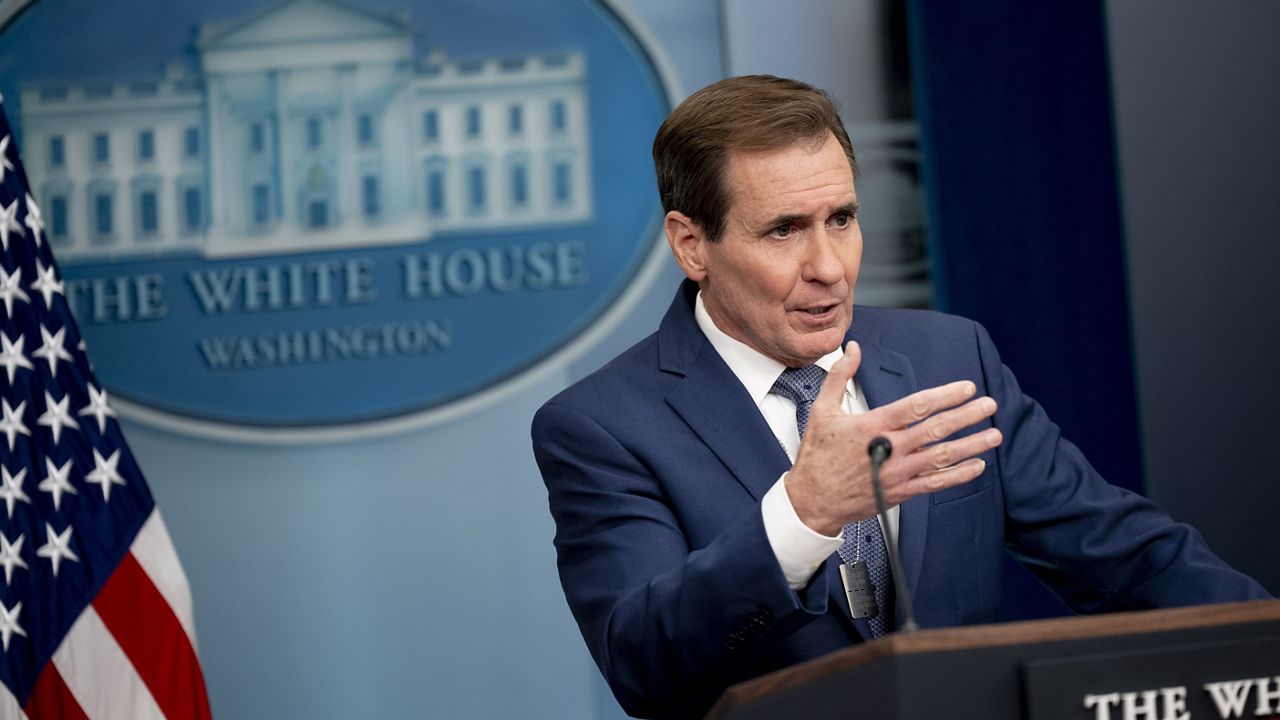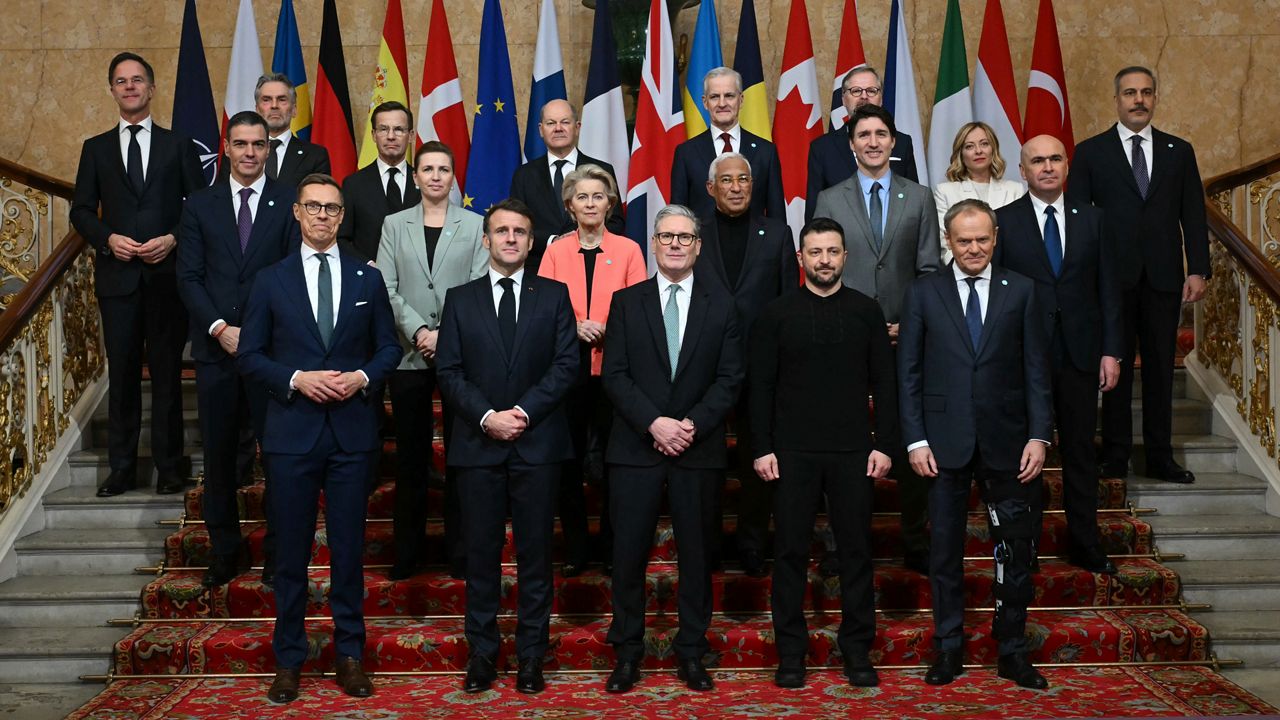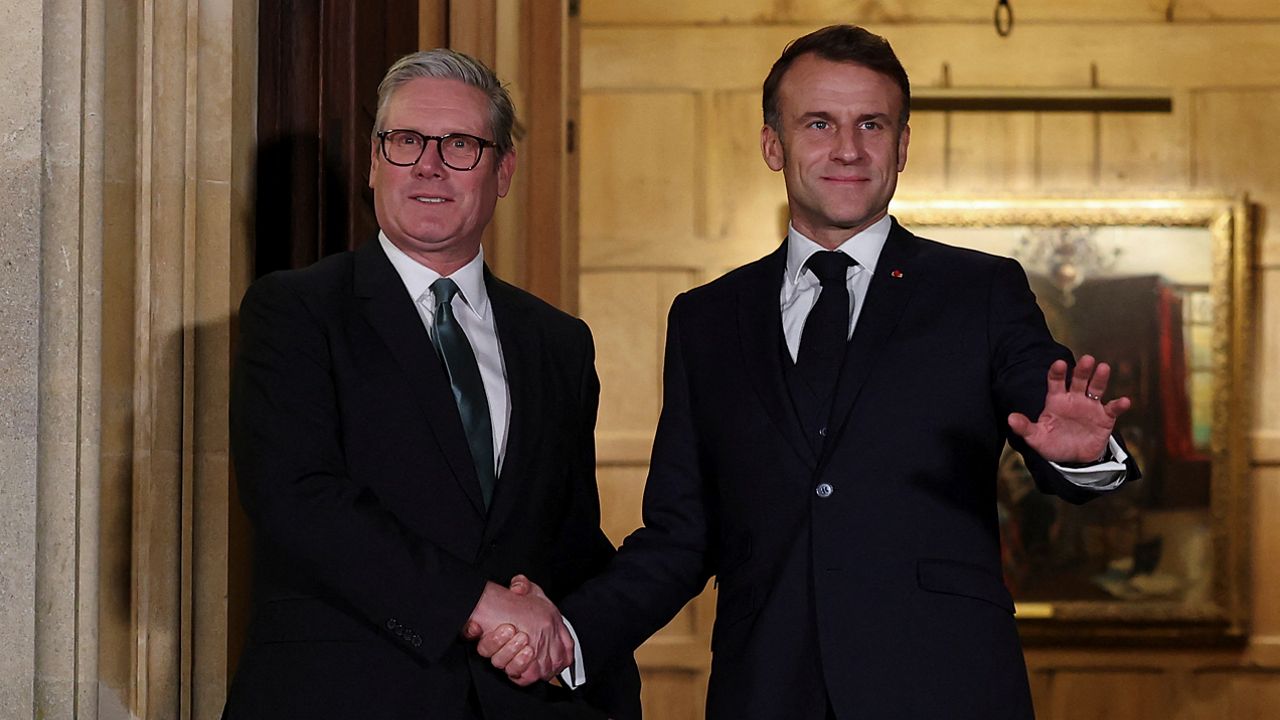President Joe Biden on Friday emphasized there is “no evidence” that Russia has decided to use an anti-satellite capability in space after the House Intelligence Committee Chairman Mike Turner, R-Ohio, sent shockwaves through Washington this week when he vaguely warned of a “serious national security threat.”
“We found out there is a capacity to launch a system into space that could theoretically do something that was damaging – hasn’t happened yet and my hope is it will not,” Biden told reporters at the end of his remarks on Russian opposition leader Alexei Navalny's death.
Biden’s response marked his first public comments on the matter since White House National Security Communications Advisor John Kirby confirmed to reporters on Thursday that the threat Turner was referring to is “related to an anti-satellite capability that Russia is developing."
“There is no nuclear threat to the people of America or anywhere else in the world with what Russia is doing at the moment, number one,” Biden said on Friday. “Number two, anything that they are going or they will do relates to satellites in space and damaging those satellites, potentially.”
“Number three, there is no evidence that they have made a decision to go forward with doing anything in space either,” the president continued.
On Thursday, Kirby sought to clarify that the weapon is "not an active capability that's been deployed," and noted that while "Russia's pursuit" of the technology is "troubling," he wanted to emphasize that "there is no immediate threat to anyone's safety."
"We are not talking about a weapon that can be used to attack human beings or cause physical damage here on Earth," he said. "That said, we've been closely monitoring this Russian activity and we will continue to take it very seriously."
Biden, Kirby said, has been regularly informed about the capability, including as recently as Thursday. The president directed further actions, including additional briefings for leaders in Congress as well as "direct diplomatic engagement with Russia" and other allies across the globe.
Kirby clarified that while the U.S. has sought communication with Russia, dialogue on the topic has yet to take place.
“We’ve reached out to the Russian side but we have not secured actual conversations at this point,” he said.
Russia has downplayed the United States' concerns about the capability.
In Moscow, Kremlin spokesperson Dmitry Peskov described the claims about a new Russian military capability as a ruse intended to make Congress support aid for Ukraine.
“It’s obvious that Washington is trying to force Congress to vote on the aid bill by hook or by crook,” Peskov said in remarks carried by Russian news agencies. “Let’s see what ruse the White House will use.”
Despite emphasizing that there is no immediate safety threat, Kirby said any anti-satellite capability “should be of general concern,” mentioning it could have an impact on communications, command and control, transportation and more.
“There is a lot of things that satellites do for the whole population of earth so any capability that could disrupt that and that could therefore have some impact on services here on earth and across the world should be of concern to anybody I think,” Kirby said.
He added that we “oftentimes” have astronauts in low-orbit that could be at risk from anti-satellite capability as well.
“So you’re talking about potential human lives here too,” Kirby said.
Turner on Wednesday sparked alarm when he released a statement urging Biden to declassify information “concerning a serious national security threat” without expanding on the nature of it.
White House officials and some of his congressional colleagues were critical of Turner's decision to come forward with his statement. One fellow Republican member of Congress, Tennessee Rep. Andy Ogles, urged House Speaker Mike Johnson, R-La., calling for a probe into Turner's actions.
"This revelation by the chairman was done with a reckless disregard of the implications and consequences said information would have on geopolitics, domestic and foreign markets, and the well-being and psyche of the American people," Ogles wrote in his letter, charging that Turner only did it to garner support for Congress to enact a Senate-passed Ukraine aid bill, as well as to boost support for renewing a controversial surveillance program under the Foreign Intelligence Surveillance Act.
"This act constituted poor judgement at a minimum and a complete breach of trust influenced by the pursuit of a political agenda at a maximum," Ogles wrote.
Turner appeared to defend his actions in a statement Thursday, writing: "The House Permanent Select Committee on Intelligence worked in consultation with the Biden Administration to notify Congress of this national security threat. In addition, language in the bipartisan notification issued by the Chair and Ranking Member to all Members of the House was cleared by the Administration prior to its release."
“The House Intelligence Committee voted 23 to 1 to make this information available to Members of Congress," Turner continued. "White House officials confirmed that, in their view, the matter was ‘serious’.”
Kirby on Thursday said that "the intelligence community has serious concerns about a broad declassification of this intelligence" and added that they assessed "starting with private engagement rather than immediately publicizing the intelligence could be a much more effective approach."
"We agree with that," Kirby continued, saying the Biden administration "has put a lot of focus" on downgrading intelligence "in a strategic way, a deliberate way, and in particular when it comes to Russia."
Kirby said that White House national security adviser Jake Sullivan was set to meet with House leadership on Thursday afternoon to give them the latest intelligence and analysis, and will brief the Senate when they are back in session later this month.
"I'm not gonna get ahead of those discussions," Kirby said, adding that when it comes to publicly disseminating intelligence, "we're not gonna be knocked off that process regardless of what, in this particular case, has found its way into the public domain."
The Associated Press contributed to this report.







